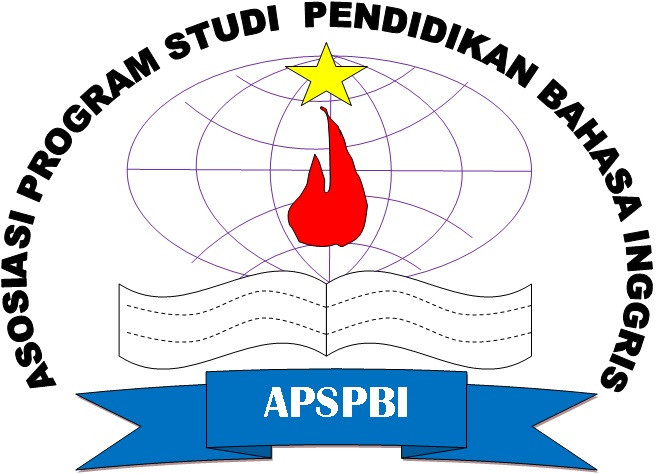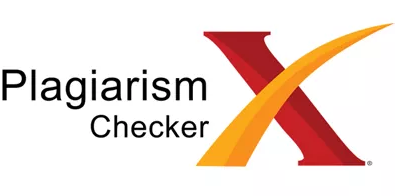Indonesian Students’ Attitudes towards EFL Learning in Response to Industry 5.0
Abstract
Keywords
Full Text:
PDFReferences
Abidin, M. J., Pour-Mohammadi, M., & Alzwari, H. (2012). EFL Students’ Attitudes towards Learning English Language: The Case of Libyan Secondary School Students. Asian Social Science, 8(2), 119 - 134. doi:10.5539/ass.v8n2p119
Adachi, R. (2015). MOTIVATION AND COMMUNICATIVE ATTITUDES AMONG JAPANESE EFL PUPILS. Indonesian Journal of Applied Linguistics, 1-10. doi:http://dx.doi.org/10.17509%2Fijal.v5i1.824
Alawiah, E. T., Apriyani, H., & Sefrika. (2017). Perancangan Sistem Informasi E-Learning untuk Pembelajaran Bahasa Inggris. Membangun Generasi Emas 2045 yang Berkarakter dan Melek IT (pp. 199 - 206). Sumedang: UPI Sumedang Press.
Al-Sobhi, B., Rashid, S. M., & Abdullah, A. N. (2018). Arab ESL Secondary School Students’ Attitude Toward English Spelling and Writing. Sage Open, 1 - 11. doi:10.1177/2158244018763477
Anggraeni, C. W. (2018). Promoting Education 4.0 in English for Survival Class: What are the challenges? Metathesis, 2(1), 12-24. doi:10.31002/metathesis.v1i2.676
Arifin, W. L. (2017). Psychological Problems and Challenge In EFL Speaking Classroom. REGISTER JOURNAL, 10(1), 29 - 47. doi:http://dx.doi.org/10.18326/rgt.v10i1.29-47
Baker, C. (1992). Attitudes and Language. Avon: Clevendon.
Burgos, E. G., & Pérez, S. (2015). Chilean 12th graders' attitudes towards English as a foreign language. Colombian Applied Linguistics Journal, 17(2), 313-324.
doi:http://dx.doi.org/10.14483/udistrital.jour.calj.2015.2.a10
Crystal, D. (2003). English as a Global Language (2nd ed.). Cambridge: Cambridge University Press.
Demir, K. A., Döven, G., & Sezen, B. (2019). Industry 5.0 and Human-Robot Co-working. The 3rd World Conference on Technology, Innovation, and Entrepreneurship (WOCTINE) (pp. 688–695). Istanbul: Elsevier. doi:10.1016/j.procs.2019.09.104
Desmaliza, & Septiani, T. (2018). Student’s Self- Efficacy And Their Speaking Skill At Lower Secondary School. Advances in Social Science, Education and Humanities Research, 115, 122 - 127.
Education First. (2019, December 18). Indeks Kecakapan Bahasa Inggris EF. Retrieved from https://www.ef.co.id/epi/regions/asia/indonesia/
Fenoll, A. A. (2018). English proficiency and mathematics test scores of immigrant children in the US. Economics of Education Review, 102-113. doi:10.1016/j.econedurev.2018.04.003
Gardner, R. C. (1985). Social psychology and second language learning. London: Edward Arnold.
Hancock, C. R. (1972). Student aptitude, attitude, and motivation. In D. L. Lange, & C. J. James, Foreign language education: A reappraisal (pp. 127-148). London: Encyclopaedia Britannica.
Hinkel, E. (2005). Handbook of Research in Second Language Teaching and Learning. New Jersey: Lawrence Erlbaum.
Irmawati, D. K., Widiati, U., & Cahyono, B. Y. (2017). How Do Indonesian Professional English Teachers Develop Their Pedagogical Competence in Teaching Implementation? Arab World English Journal (AWEJ), 8(2), 293 - 307. doi: https://dx.doi.org/10.24093/awej/vol8no2.21
Mbato, C. L., & Kharismawan, P. Y. (2018). A Correlational Study between Language Attitudes and English Language Orientation of Indonesian EFL Learners. Language Education and Acquisition Research Network Journal, 11(1), 150-169.
Nahavandi, S. (2019). Industry 5.0—A Human-Centric Solution. Sustainability, 1-13. doi:10.3390/su11164371
Nduwimana, A. (2019). Pure Sciences Students’ Attitudes towards Learning English: The Case of University of Burundi. International Journal of Research in English Education, 4(2), 1 - 13.
Silalahi, R. M. (2017). Indonesian University Graduates’ English Competence for Facing the Asean Economic Community (AEC). INDONESIAN JOURNAL OF ENGLISH EDUCATION, 4(1), 71 - 83. doi:http://dx.doi.org/10.15408/ijee.v4i1.3457
Sulistiyo, U. (2016). ENGLISH LANGUAGE TEACHING AND EFL TEACHER COMPETENCE IN INDONESIA. The Fourth International Seminar on English Language and Teaching (ISELT-4) (pp. 396 - 406). Padang: Universitas Negeri Padang.
Sulistiyo, U., & Haswindy, S. (2018). Organizing Professional and Pedagogical Training to Improve English Teachers’ Skills: A Literature Review. Jurnal Pendidikan dan Pengajaran, 5(2), 167 - 174.
Ting, S.-H., Marzuki, E., Chuah, K.-M., Misieng, J., & Jerome, C. (2017). EMPLOYERS’ VIEWS ON THE IMPORTANCE OF ENGLISH PROFICIENCY AND COMMUNICATION SKILL FOR EMPLOYABILITY IN MALAYSIA. Indonesian Journal of Applied Linguistics, 7(2), 315-327. doi:dx.doi.org/10.17509/ijal.v7i2.8132
Wichmann, R. L., Eisenbart, B., & Gericke, K. (2019). THE DIRECTION OF INDUSTRY: A LITERATURE REVIEW ON INDUSTRY 4.0. The 22nd International Conference on Engineering Design (ICED19), (pp. 2129-2138). Delft.
Yosintha, R., & Arochman, T. (2020). Preparing English Department Students for Industry 4.0 Era through Critical Thinking Skills Development. The 2nd International Conference on Language and Language Teaching (ICLLT). Magelang: European Alliance for Innovation. doi:http://dx.doi.org/10.4108/eai.12-10-2019.2292229
Zeinivand, T., Azizifar, A., & Gowharya, H. (2015). The relationship between attitude and speaking proficiency of Iranian EFL learners: The case of Darrehshehr city. GlobELT: An International Conference on Teaching and Learning English as an Additional Language (pp. 240 – 247). Antalya, Turkey: Elsevier Ltd. doi:10.1016/j.sbspro.2015.07.512
DOI: https://doi.org/10.31002/metathesis.v4i2.2360
Refbacks
- There are currently no refbacks.

This work is licensed under a Creative Commons Attribution-ShareAlike 4.0 International License.
Metathesis: Journal of English Language, Literature, and Teaching is published by English Education Department, Faculty of Teacher Training and Education, Universitas Tidar, Magelang, Indonesia in collaboration with Asosiasi Program Studi Pendidikan Bahasa Inggris Se-Indonesia (APSPBI)
ISSN: 2580-2712 (print) and 2580-2720 (online)
Jalan Kapten Suparman 39 Magelang, Jawa Tengah, Indonesia 56116
Phone (0293) 364113 Fax (0293) 362438













